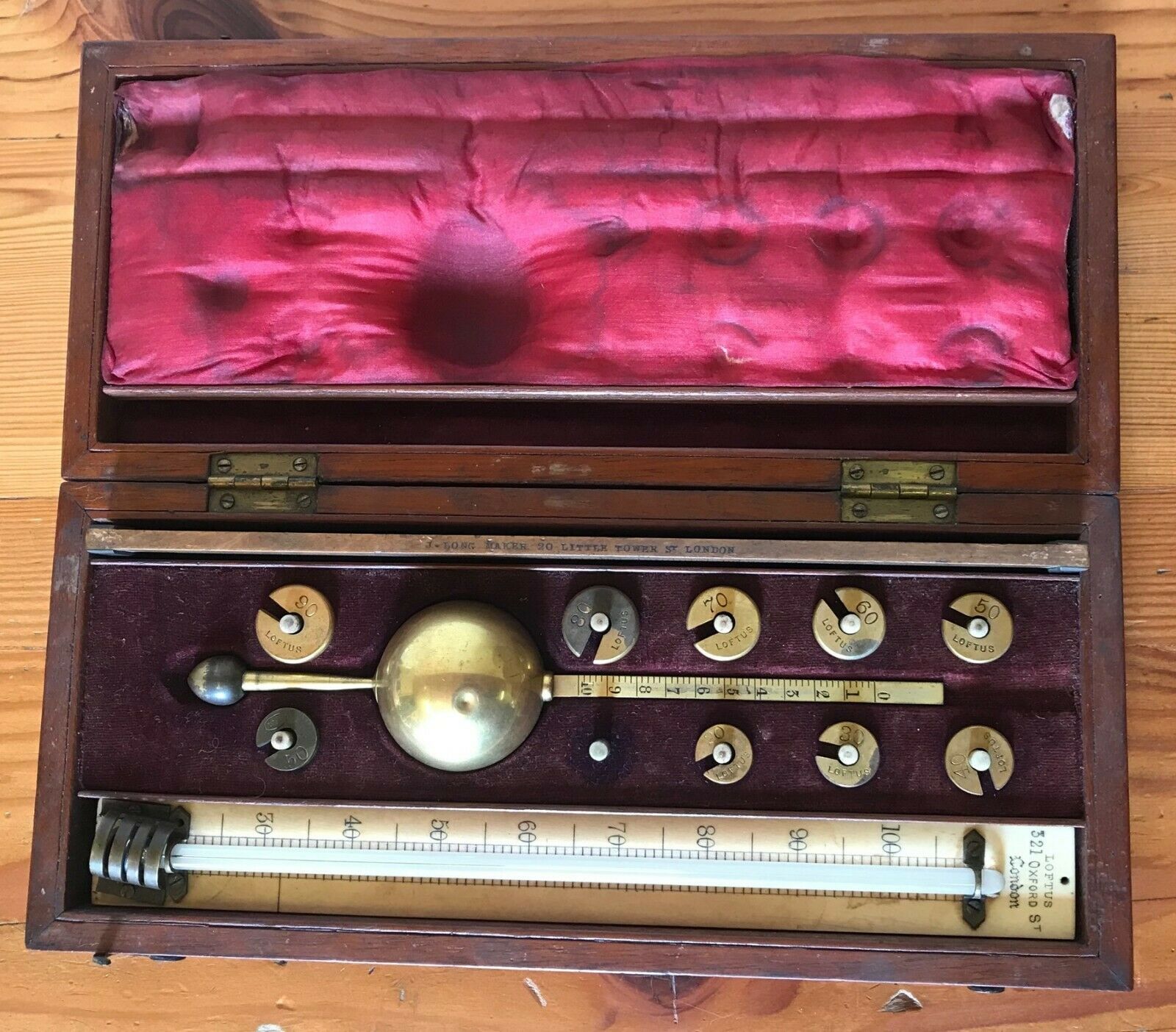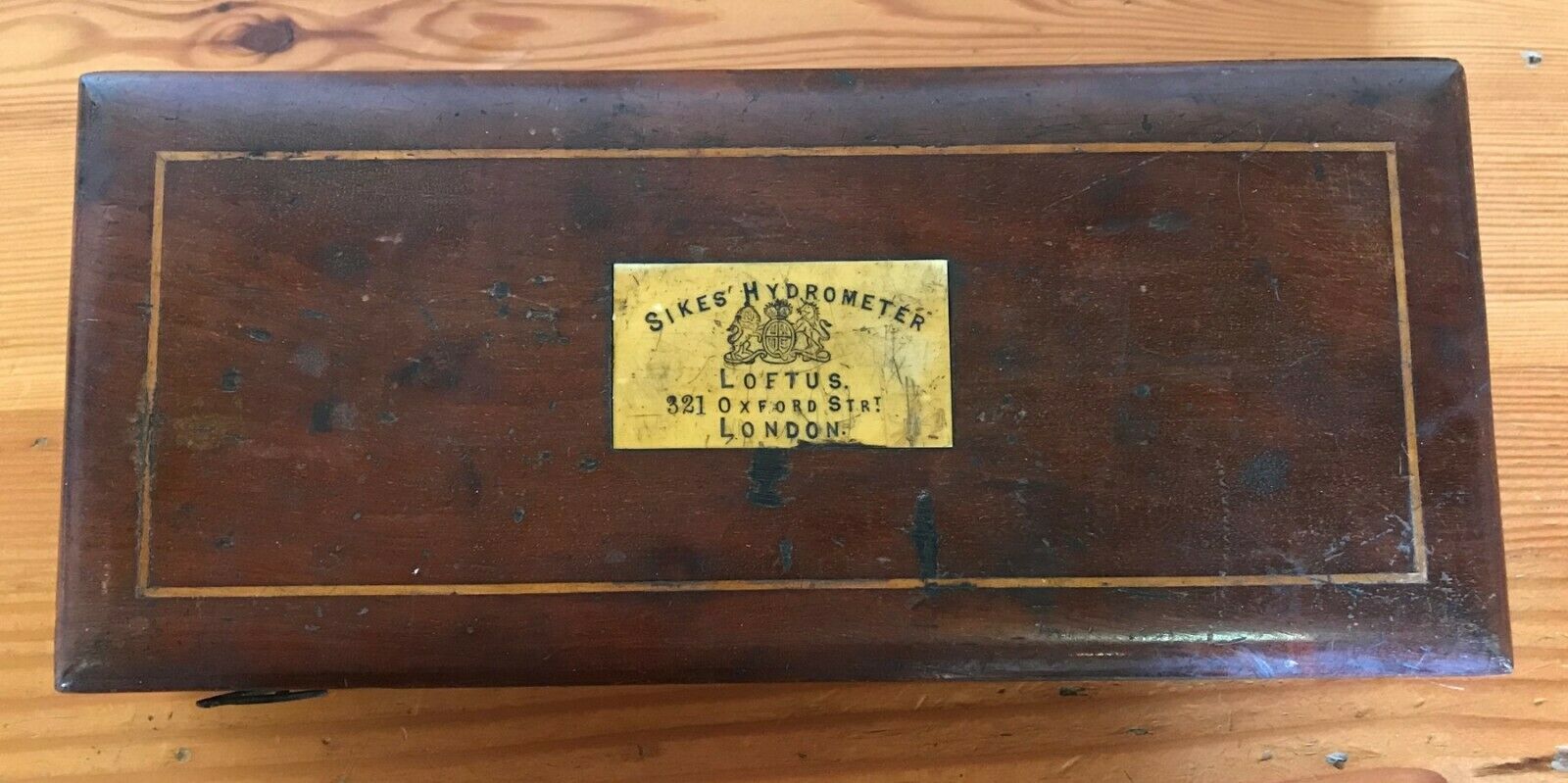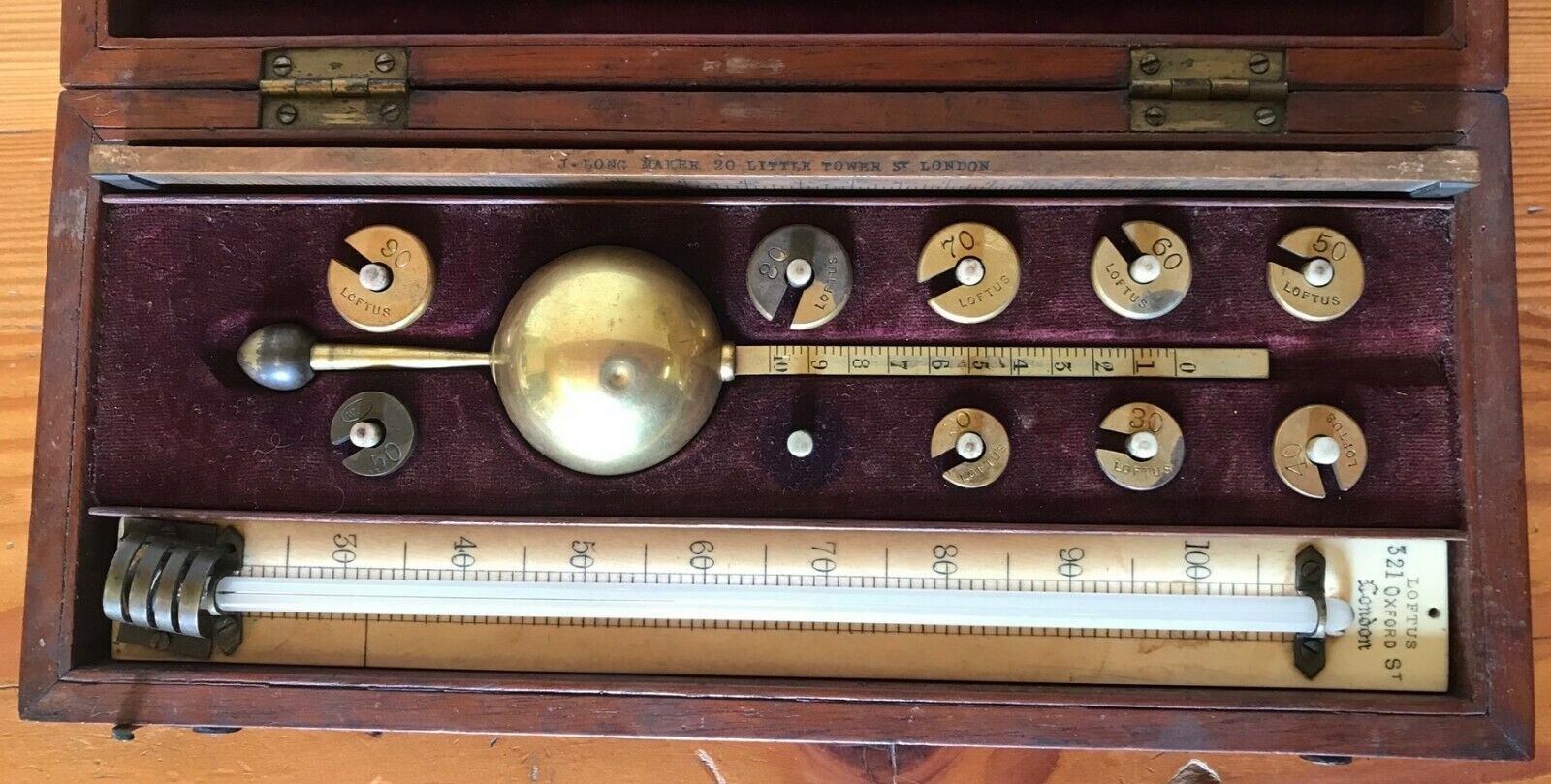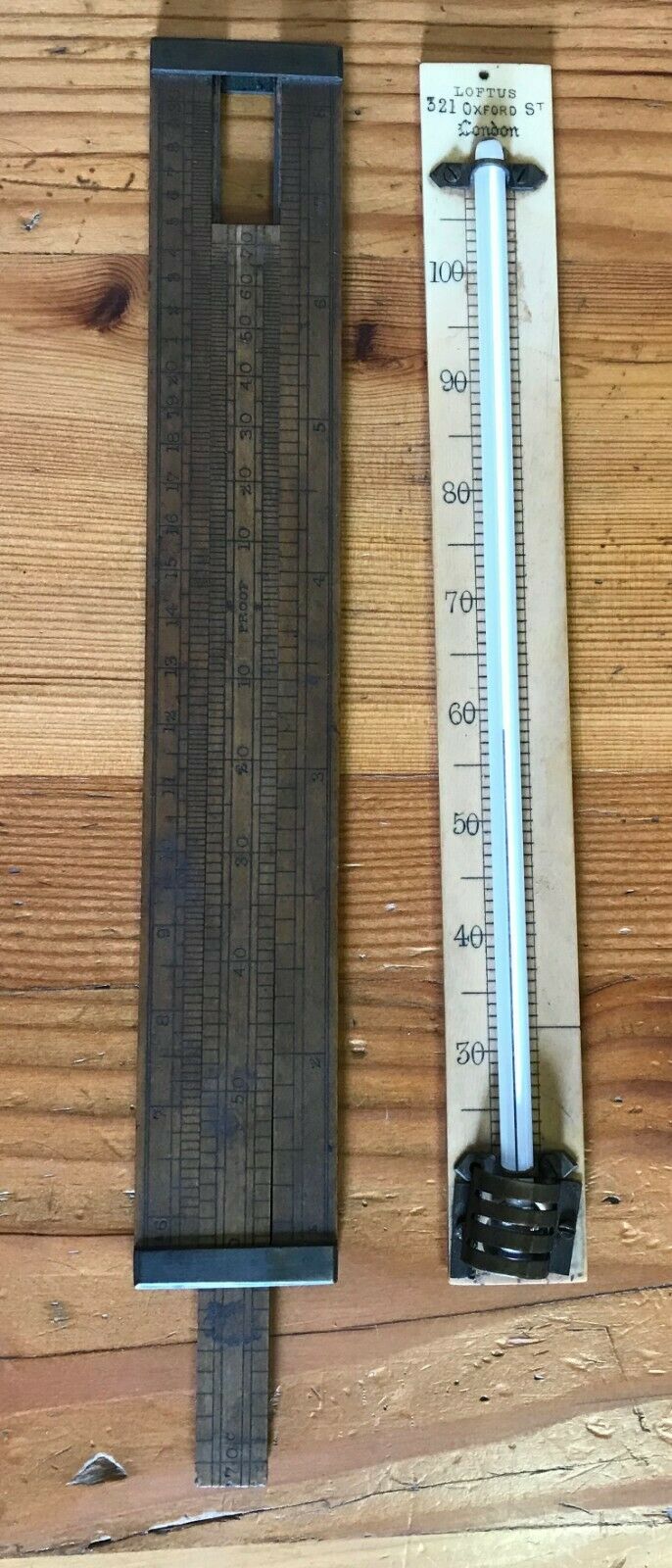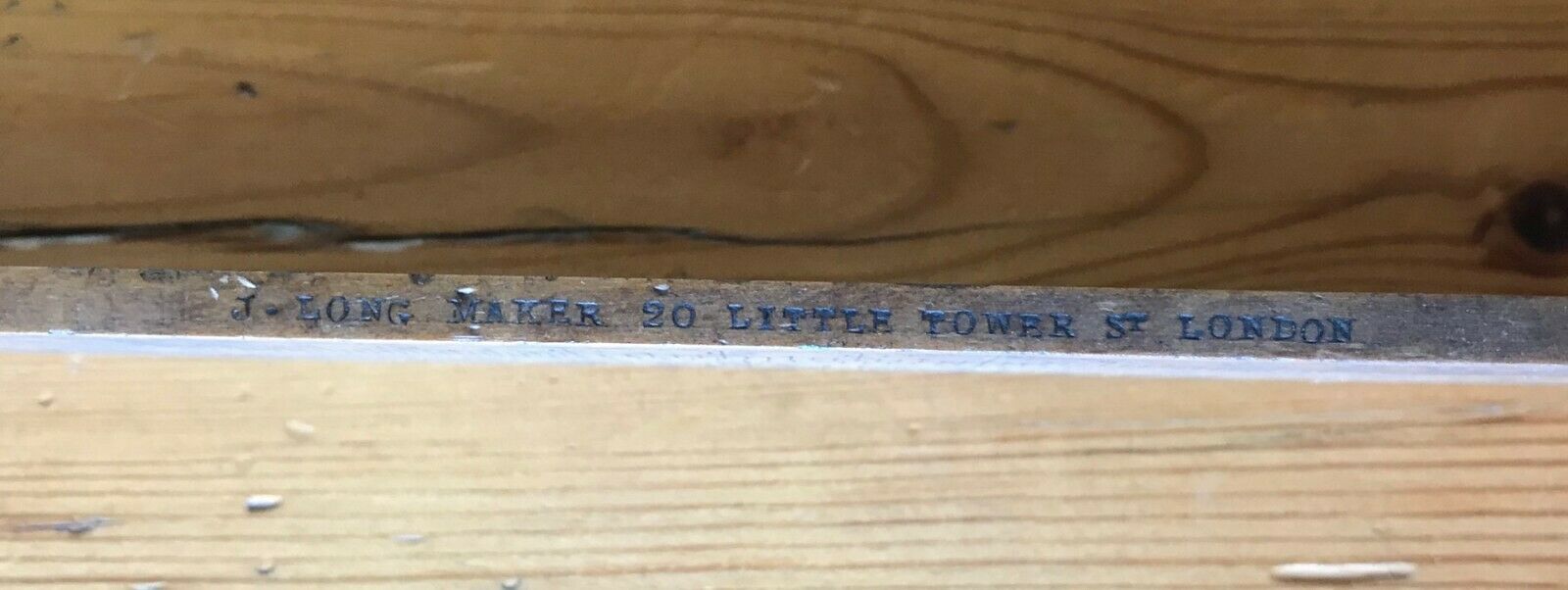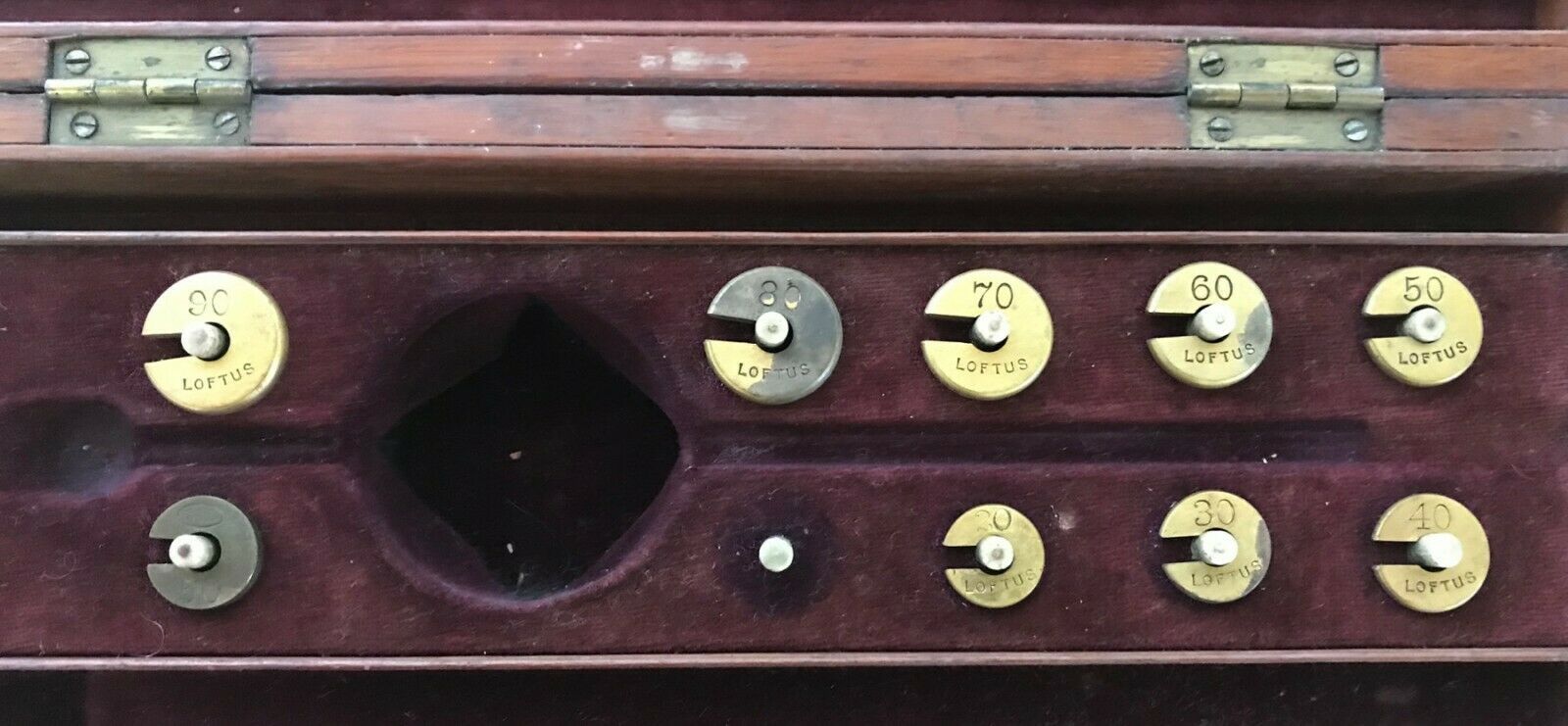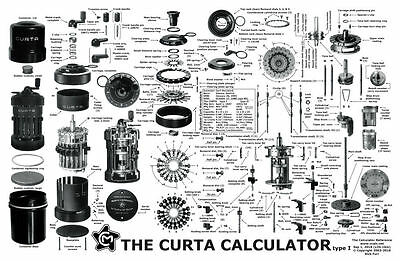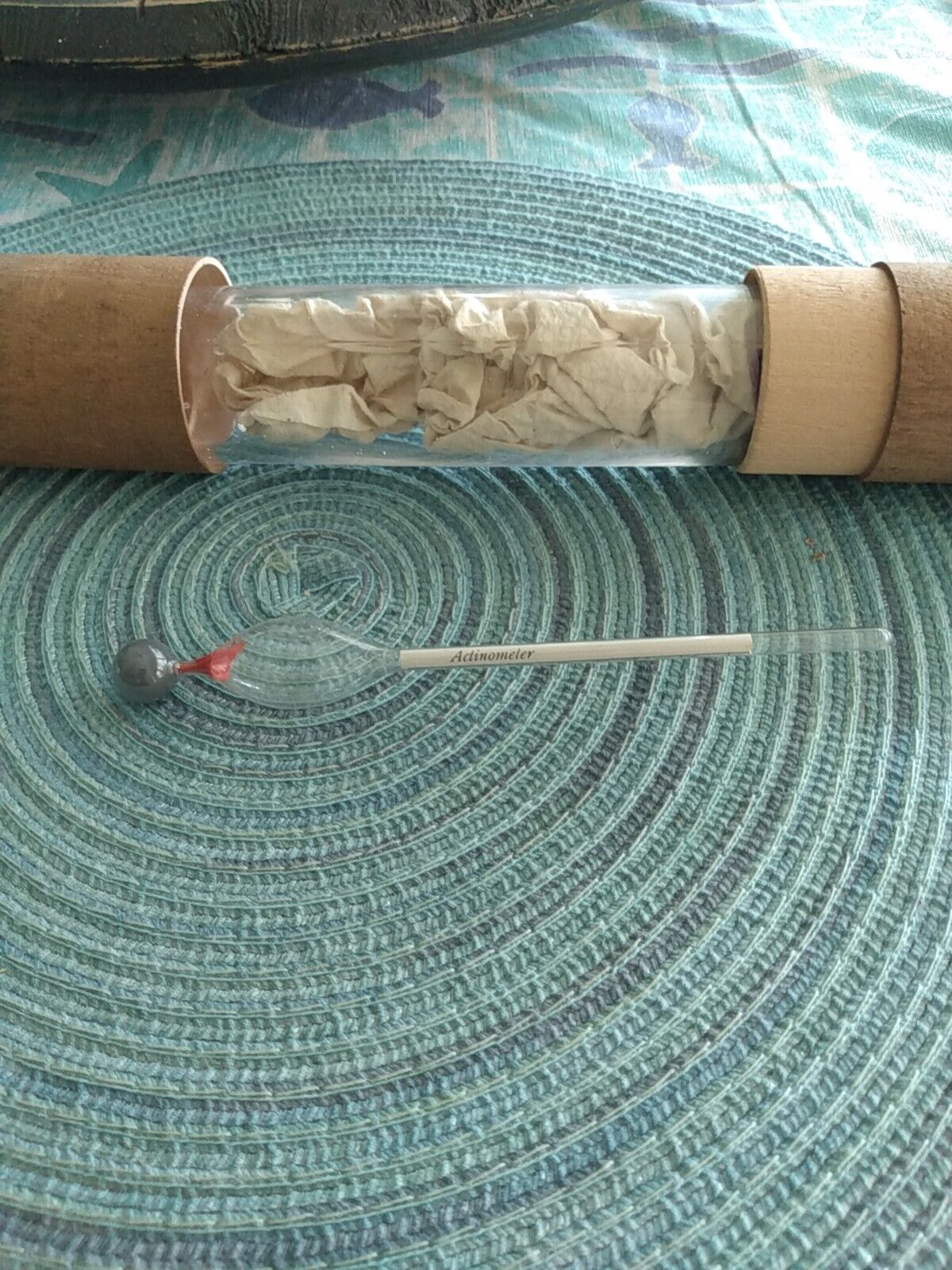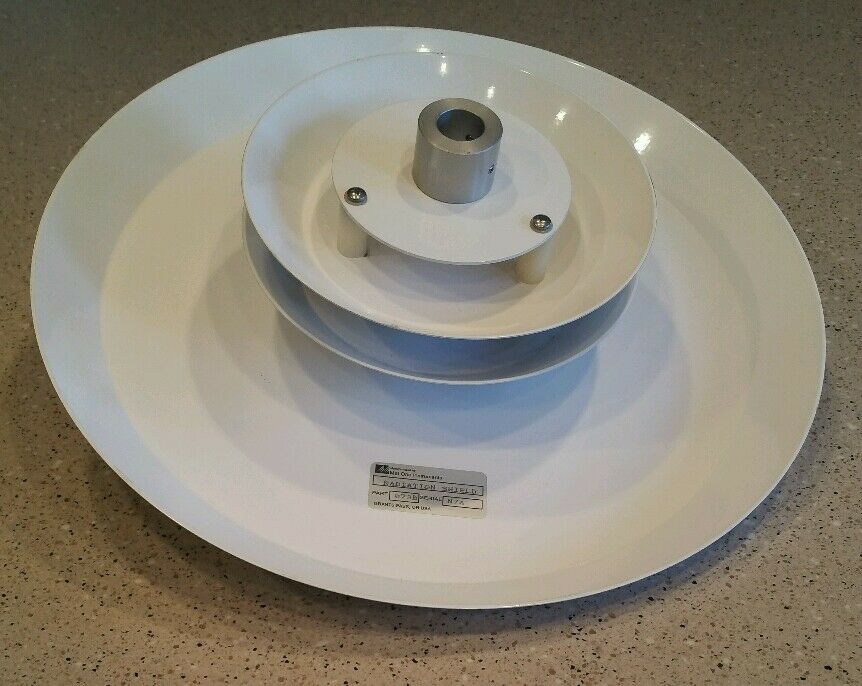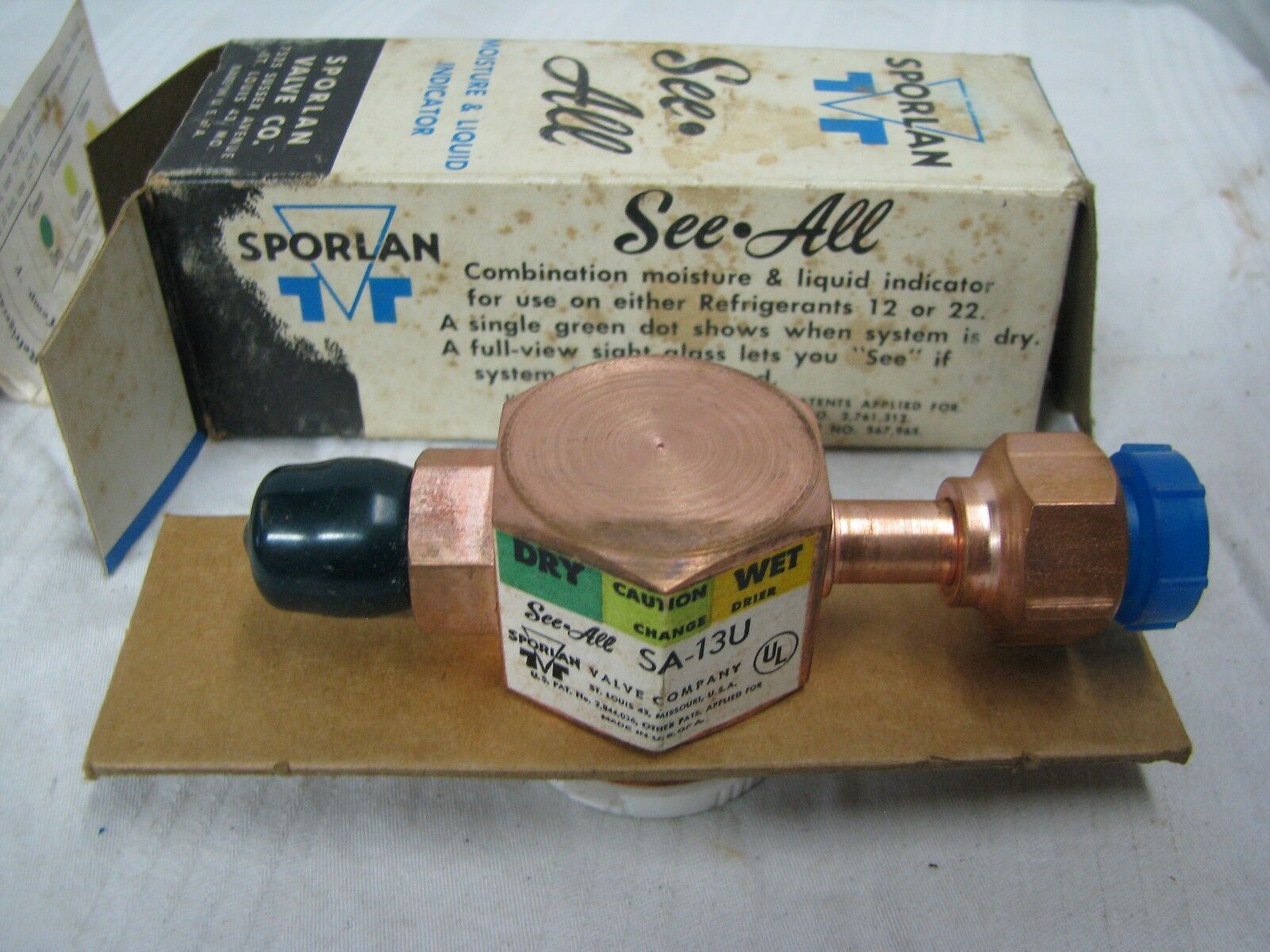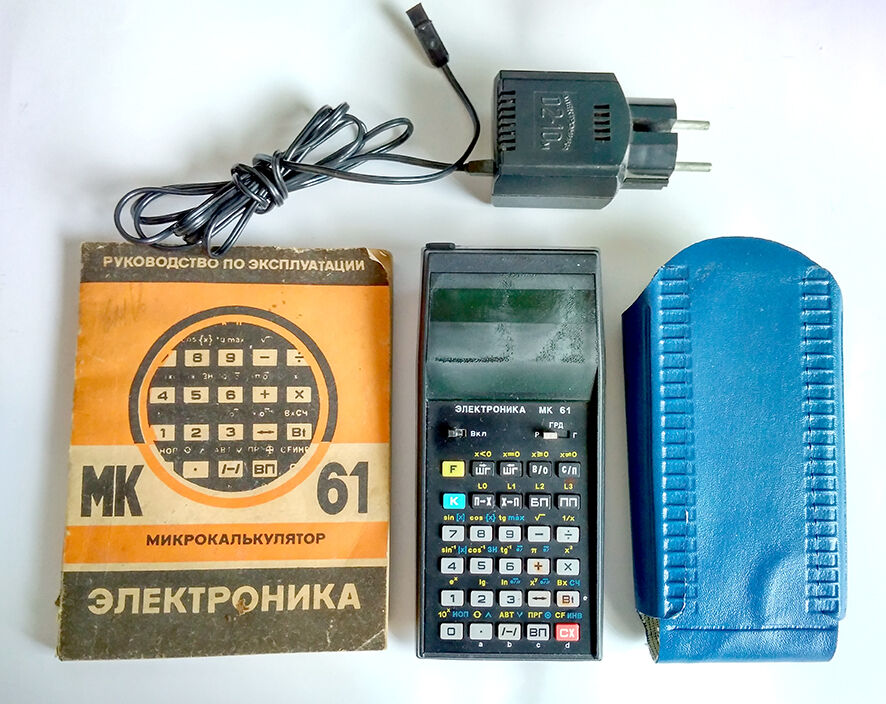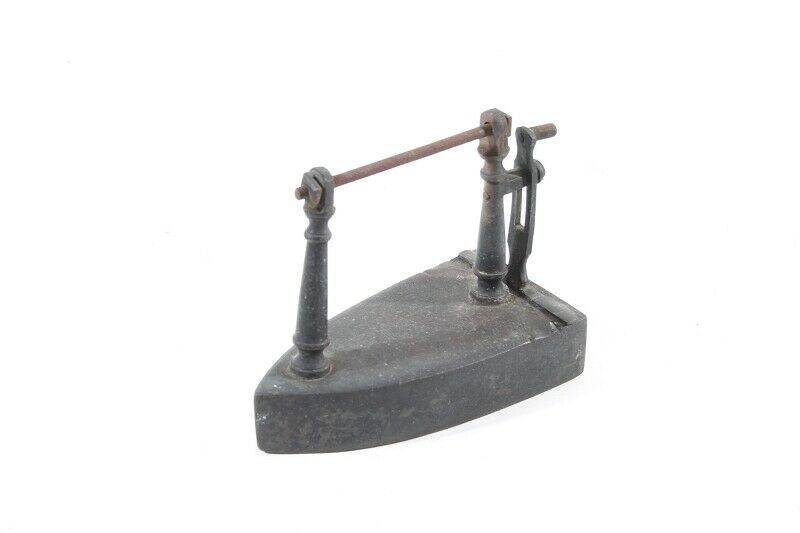-40%
SIKES HYDROMETER=THERMOMETER=SLIDE RULE=CASED=MATERIAL LINING=1930's +=J. LONG.
$ 116.16
- Description
- Size Guide
Description
HISTORY OF THE SIKES HYDROMETERIn 1802 the Board of Excise held a competition to find a better instrument than Clarke’s hydrometer for revenue purposes and nineteen instruments were submitted for consideration. The winning design was that of Bartholomew Sikes, an employee of the Excise Commissioners. Sikes hydrometer was enshrined in legislation in 1816 with the Sikes Hydrometer Act and remained the legal standard until 1907.
The Sikes hydrometer was used to determine the strength of spirits for the distiller, victualler and tax collector alike. It was required that brewers notify the tax exciseman of times when the first wort would be ready for measure. The exciseman would measure the gravity of the wort and impose the duty due. John Tuck an early 19thC brewer said “and if the exciseman is a good fellow, be sure to tell him the time the first wort will be out, and get him a handsome lunch and a cup of ale”.
Sikes hydrometer = cased by Loftus, 321 Oxford Street, London, England.
A small brass / gilded hydrometer composed of a spherical ball with two stems. The shorter one has a pointed weight at its end, while the longer stem has an engraved scale going from 10 to 0 as one moves further from the ball. The hydrometer has its original "mahogany?" case with velvet / material lining, which also carries nine weights (10 to 90), a thermometer to suspend in liquids, and a slide rule for conversion purposes.
The Sikes hydrometer was the standard instrument used to measure the concentrated strength, or proof, of liquor to collect revenue in the United Kingdom in the mid-nineteenth century.
The density of a fluid is determined by floating the hydrometer in the fluid and noting its buoyancy from its scale. A set of weights that attach to the hydrometer is provided for modifying the range of the instrument.
Bartholomew Sikes (d. 1803) was an officer in the employ of HM Excise who in the late 18th century perfected a device by which the alcoholic content of a liquid can be measured. The success of the device caused his name to be immortalised in an Act of Parliament: Sikes' Hydrometer Act 1816, 56 Geo. III c. 140. From 1816 until 1980 the hydrometer was the standard used in the UK to measure the alcohol proof of spirits, and from 1846 in Canadian law.
It was used in conjunction with a book of tables by distillers to determine the strength of spirits by providing the user with alcohol proof, strength and percentages.
The thermometer is made up of a bone base, engraved on one side with a temperature scale from '30 - 100" degrees. Mounted on the base using three metal brackets, and running along the scale, is a cylindrical glass tube filled with mercury. Engraved "Loftus, 321 Oxford Street, London"
Joseph Long = Slide Rule.
Hydrometer Instrument maker, Mathematical instrument maker, Optical instrument maker
Traded at 20 Little Tower St. (1821-84) & 43 East Cheap (1885-1936) both London, England
The wooden sliding rule is marked “J. LONG, 20 Little Tower ST. London".
Fairly G
ood all round condition, has usage wear and some minor tears to the top material insert, one weight missing, brass has some wear and bulb / sphere has a ding in it. Thermometer cover at the bottom has been broken on one side. One panel pin missing for right side clip.
Dimensions of Case = Length 242mm x width 115mm including hinges and clips x 53mm deep.
Sold as seen in the images. Images form part of the description.
*** Please feel free to ask questions ***
+++ Thank you for viewing our items +++
These items will be shipped with DHL International Express Couriers.
In
surance will be
included in the shipping price at the sold value
.
If you would like to possibly get a better shipping price, please ask and send us
the destination of the item for a quote.
This shipping price and destination quote cannot be changed
once
purchased!
Paypal is the preferred method of payment.
